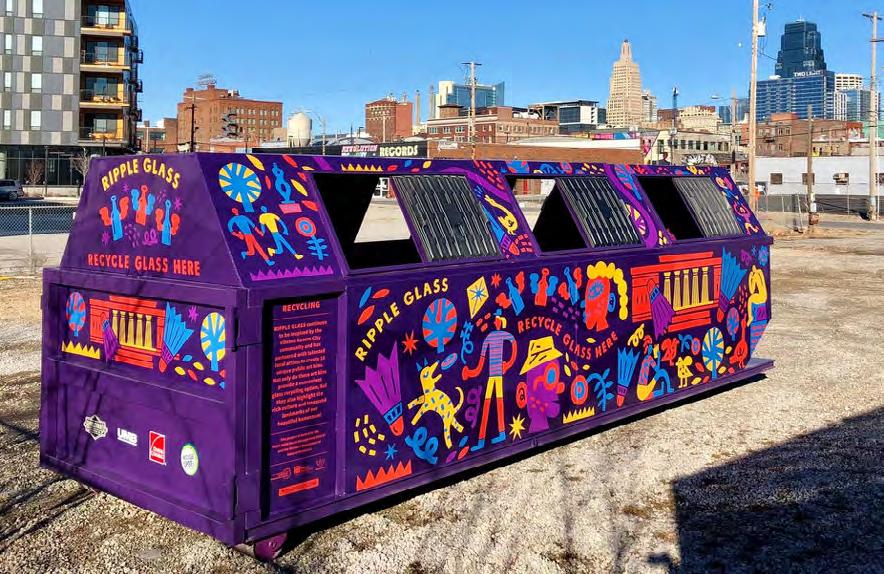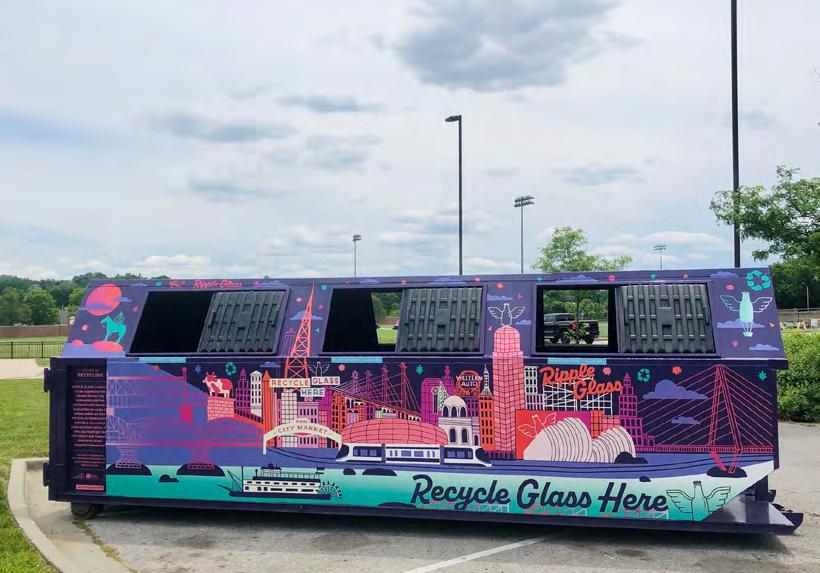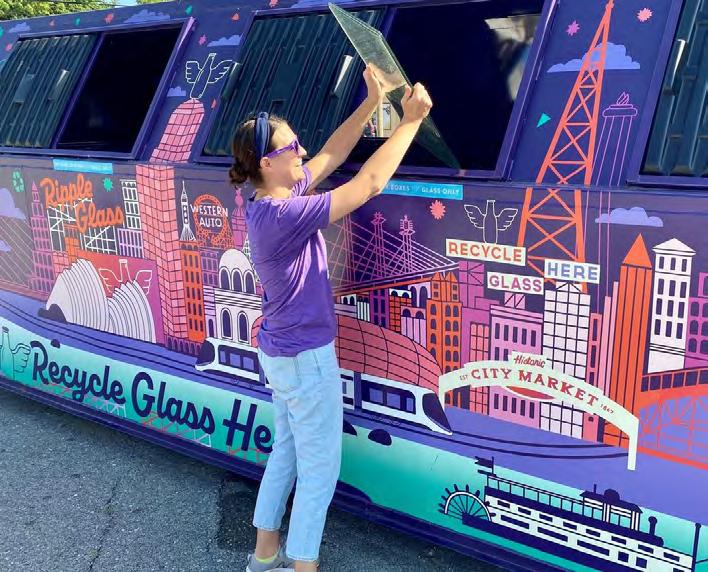
2 minute read
RIPPLE GLASS EXPANSION QUALITY
Strategic Materials, Inc. announced the acquisition of Ripple Glass in September 2022. Ripple Glass, based in Kansas City, Missouri, has provided a solution for local glass recycling since 2009. Before Ripple Glass, Kansas Citians threw away 150 million pounds of glass. Since its launch, Ripple Glass has more than quadrupled the rate of glass recycling in the Kansas City metropolitan area and has collected glass from more than 100 municipalities throughout the Midwest.
Ripple Glass achieves glass recovery goals by expanding glass collection and glass recycling facilities. The two companies’ missions and values align closely making the partnership a natural match. All Ripple Glass employees were retained during this process, as they are an invaluable addition to the SMI team.
Advertisement
RIPPLE GLASS’S NEW ART BINS
World Conservation Day, July 28th, 2022, was the “Glass Breaking” on ten new glass collection bins for Ripple Glass. Ripple Glass coordinated the launch of the new bins. Each bin is an artistic representation of the vibrant Kansas City community and was created by local artists to highlight the rich culture and treasured landmarks of their beautiful hometown.


The consistent quality of products elevate SMI as a premier partner. For three consecutive years, SMI achieved a quality acceptance rate of over 99%. This level of quality can be attributed to a refined and optimized process and sophisticated operating systems.
Quality Process
Supply: SMI receives feedstock glass from a variety of streams. Single-stream or curbside glass is typically known as 3-mix because all the colors of glass are mixed together and includes some nonglass residuals or contamination such as plastic, paper, metal, or non-recyclables. SMI also accepts automotive glass like windshields, windows, borosilicate, and heavily laminated glass at select plants.
Pre-Process: This part of the process removes non-glass residuals using air classification to remove lightweight material.
Second Cleaning: The remaining glass, heavier plastics, and other materials not removed from the pre-cleaning line run through a series of conveyors and screens to remove all non-glass items.
Optical Sort Line: Removes ceramic, stone, and porcelain, and large pieces of plastic or other contaminates.
Color Sorting Line: We sort the glass by colors, primarily flint (clear), amber (brown), and emerald (green).
Sent to Finished Product Bunker: The glass now meets customer specifications and is ready to be loaded into a truck and delivered to customer.
99.9% QUALITY ACCEPTANCE RATE 2020-2022
STRATEGIC MATERIALS OPERATING SYSTEM (SMOS)
The Strategic Materials Operating System (SMOS) is built on a broad application of lean fundamentals and Six Sigma tools. It drives the business and gives Strategic Materials a true competitive advantage over competition. The SMOS is comprised of 12 elements that measure the production system, management system, and organization design. By standardizing, measuring, and driving results, this system focuses on both application and human interaction.
Structure and Accountability
• Build the foundation of SMOS with a focus on standard work (operator and processes), preventative maintenance, and 5S
• Capture Yield Improvement best practices and transfer them to other plants
Deploy and Monitor
• Deploy virtual metrics and tracking to improve information availability and accuracy
• Train and certify more LE Blackbelts in the company
• Help the organization gain Six Sigma expertise
Sustained Lean Culture/Pursuing Excellence
• Develop a formal mentoring and coaching process with Lean Six Sigma Green belts
• Integrate customers and suppliers into the operating system







